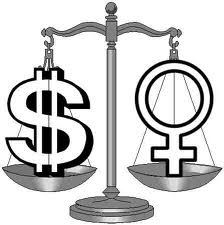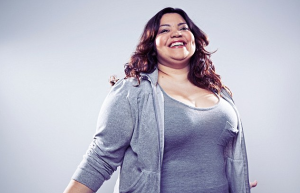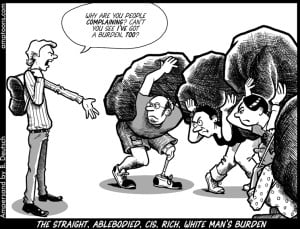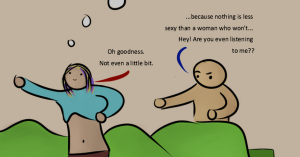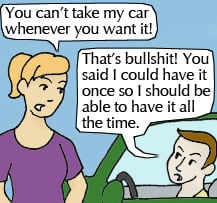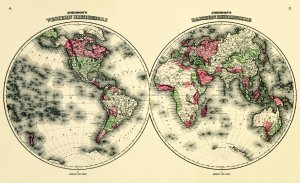As feminists, we like to think that we’ve come a long way from the days when women weren’t lawyers, jurors, or judges and marital rape was perfectly legal.
And truthfully, we have in some parts of the world. Women now participate in the legal system, and women’s legal issues are treated more sensitively than in past times.
But we haven’t eliminated all of the inequalities in the legal system, including in the US. Still largely disadvantaged are low-income women, who have a hard time getting legal protection, among other things, in cases of harassment, discrimination, and violence.
Though all low-income people face a measure of difficulty in obtaining legal counsel, more than two-thirds of civil legal aid clients are women.
And because most of these women are mothers, a lack of legal aid and the challenges of low-income motherhood place them and their children in vulnerable positions.
What’s more, public funding for civil legal aid is on the decline. In 2012, Congress cut funding to the Legal Services Corporation, disenfranchising 81,000 low-income Americans. This year, sequestration budget cuts will negatively impact programs for low-income victims of domestic violence.
With more cuts on the horizon and alternative sources of funding hard to find, there remain low-income women who don’t have access to any sort of legal aid.
So even though we’ve come a long way in building our justice system, we still need to consider the ways in which it fails to serve certain populations. Low-income women often face a lack of legal options in the following arenas:
Stigma
Low-income women’s bodies and decisions are always under a microscope. Whether low-income women have children, get abortions, engage in risky behavior for money, hold stable jobs, smoke cigarettes, eat healthy, get educations, enjoy their lives, or struggle through depression, there will always be some privileged person criticizing them and talking about bootstraps.
It’s no surprise then that the stigma against low-income women can blind us (judges and jurors included) to how inadequate the legal system is. The media tends to portray low-income women, particularly black women, as “welfare queens” with victim mentalities or poor decision-makers who take part in their own abuse.
Employment
Take this for example: A woman is being sexually harassed by the attorney she works for. She eventually groups with other women to take legal action, but for a long time, she is afraid to quit for fear of losing welfare benefits. Cases like hers, of low-income women facing discrimination and harassment from employees, are not uncommon.
For many women, taking a legal stand against harassment in the workplace has been empowering and worthwhile. But not all women can afford legal protection after dealing with sexual harassment or wrongful termination.
And as in the example above, a lack of job options can make women feel trapped in unsafe work environments.
Family Law
Low-income women going through divorce are also in a financially risky situation, especially if they have children.
For one, they don’t get a lot of legal support in general. And with low incomes, single mothers either have to work full-time and pay for childcare that they may not be able to afford, or they keep low hours to avoid paying for childcare and need support.
The problem is, custody battles and child support negotiations are handled in the courts, and they cost money.
Even if she can support herself and her child under normal circumstances, the financial burden and stress of custody and child support agreements could lead a mother to lose custody and end up paying child support, even if the ex is wealthier.
Domestic Violence
The family law issues mentioned above are compounded if domestic violence is involved. Women may again feel trapped because they don’t have the resources to get the legal help they need to escape the situation without losing financial support for themselves and their children.
As far as legal protections go, gaps in funding are created when women earn too much to get civil aid but too little to afford legal fees, leaving them with no real options.
They may also concurrently struggle to afford mental health care and medical care for treating injuries from abuse.
Sexual Assault/Sexual Violence
Like survivors of domestic violence, survivors of sexual assault often rely on legal support to seek justice and escape violent situations. But low-income women may have less access to health services after sexual assault that could help them legally, such as an abortion if sexual assault results in pregnancy. A lack of options can mean life or death in violent circumstances.
So things aren’t as equal as they should be. To address the problems of unequal access to justice, we need to look critically at our public defense system and low-cost private legal aid.
Knowing that the current legal system is not enough, we can note and criticize Congress’ continued cuts to the civil legal aid program, educate ourselves about what really is available, and advocate for community changes to supplement civil legal aid.
Resources
Want to discuss this further? Login to our online forum and start a post! If you’re not already registered as a forum user, please register first here.
Jarune Uwujaren is a Contributing Writer for Everyday Feminism. A Nigerian-American recent graduate who’s stumbling towards a career in writing, Jarune can currently be found drifting around the DC metro area with a phone or a laptop nearby. When not writing for fun or profit, Jarune enjoys food, fresh air, good books, drawing, poetry, and sci-fi. Read her articles here.
Search our 3000+ articles!
Read our articles about:
Our online racial justice training
Used by hundreds of universities, non-profits, and businesses.
Click to learn more


